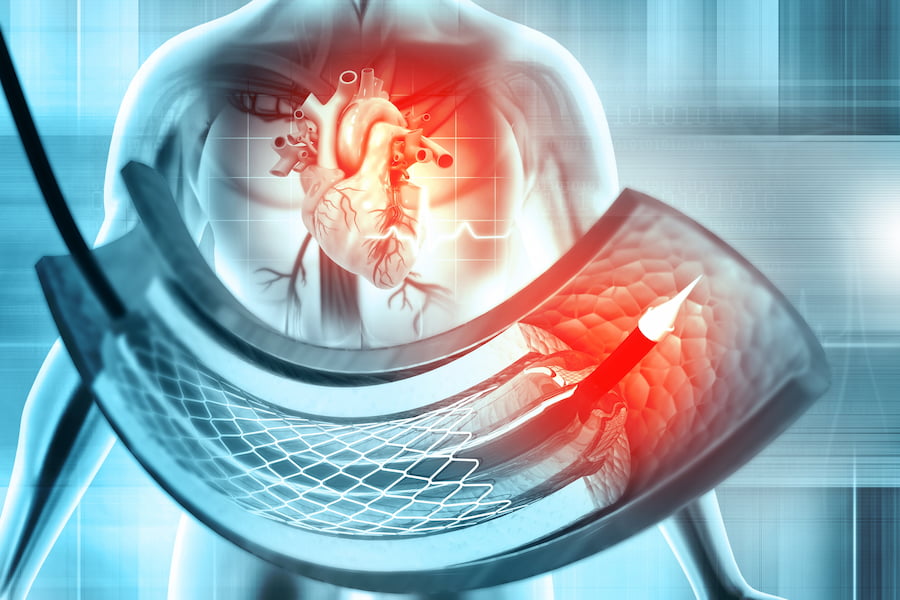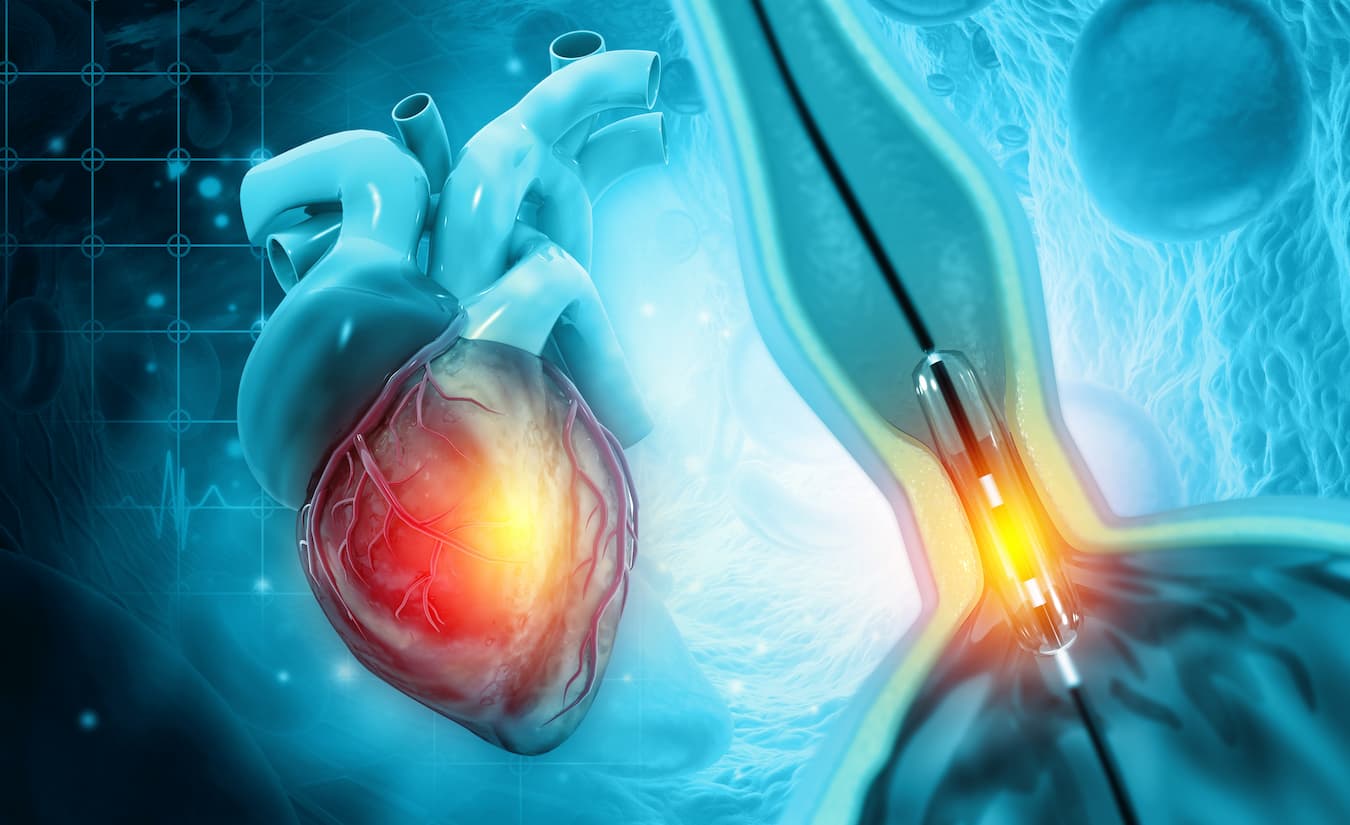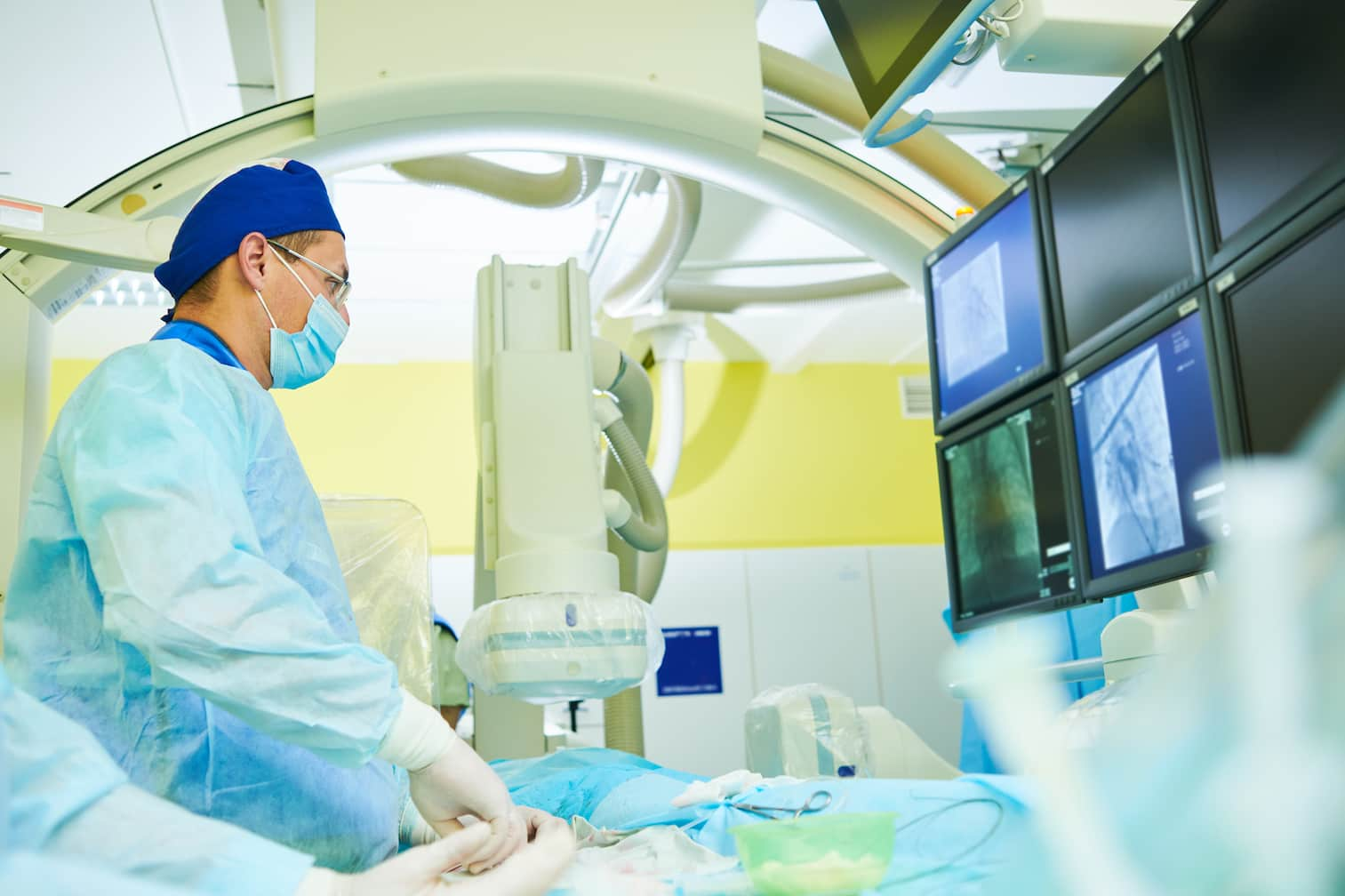Coronary Angiography in Turkey
Healthy Türkiye helps you find the best coronary angiography in Turkey at affordable prices and adopts a 360-degree service approach in all areas of health through affiliated hospitals.
- Medical Treatment
- Cardiac Surgery in Turkey
- Balloon Valvuloplasty in Turkey
- Coronary Angiography in Turkey
- Heart Bypass Surgery in Turkey
- Pediatric Cardiac Surgery in Turkey
- Aortic Aneurysm Surgery in Turkey
- Atherectomy in Turkey
- Cardiac Ablation Treatment in Turkey
- Carotid Endarterectomy in Turkey
- Coronary Angioplasty in Turkey
- DOR Procedure in Turkey
- Open Heart Surgery in Turkey
- Pacemaker Implantation in Turkey
- Valve Replacement in Turkey
- Defibrillator Implant Surgery in Turkey
- Transmyocardial Revascularization in Turkey
- Transcatheter Aortic Valve Replacement in Turkey
- Homepage
- Medical Treatment
- Coronary Angiography in Turkey

About Coronary Angiography in Turkey
Coronary angiography is used in Turkey to visualize the inside of coronary arteries. In order to inject dye into the bloodstream, a catheter must be inserted into a blood vessel. The dye allows medical professionals to see artery blockages on x-rays.
The location of catheter insertion, which may be close to the groin or arm, is adequately cleaned and disinfected before the coronary angiogram procedure. After that, a local anesthetic injection is given. A tiny plastic tube or sheath is put inside the artery after a small incision is made at the location. The catheter is then delicately passed into the coronary artery or the heart after being carefully implanted into the blood vessels via the tube.
Then, a contrast or specialized dye is administered via a catheter. The patient may experience minor flushing or warming while doing this. The patient is encouraged to contact the doctor if the discomfort or unease worsens. This method allows for a close examination of the blood flow within the heart using X-ray pictures and a specific dye or contrast. The X-ray images of the heart’s blood vessels are highlighted by a particular dye or contrast when the heart moves inside the body. This makes it simple for the doctor to identify the problematic areas that are affected. During the coronary angiogram, the doctor may also implant a stent or perform a balloon angioplasty if necessary to open a blocked artery.
The word “angiography” comes from the Greek words “angeion,” which means “vessel,” and “graphein,” which means “to write.” An X-ray of the heart is taken using the angiogram procedure or arteriography technique in order to see the interior of the arteries, veins, and the four chambers of the heart: the right atrium, right ventricle, left atrium and left ventricle. A catheter, or thin tube, must be inserted into a peripheral artery in order to perform angiography or angiogram.

Coronary Angiogram in Turkey
The method of coronary angiogram is done to look at the coronary arteries. The arteries that supply oxygen-rich blood from your heart to your organs are known as coronary arteries. The procedure known as cardiac catheterization, which is used to perform coronary angiograms, entails inserting a catheter (a lengthy, flexible plastic tube) into your heart. Your arm or groin arteries are used to place the catheter.
Coronary angiography in Turkey makes use of specialized dyes and X-rays that help doctors view inside the coronary arteries. Coronary arteries are arteries present in the heart area. They transport oxygen-rich or pure blood to the heart. Coronary angiography is used to detect plaque or blockages in the coronary arteries.
The angiography test can determine whether any coronary arteries are clogged, where they are blocked, and how severe the blockages are. You will be sedated and will most likely feel little or no discomfort.
A patient’s blood pressure and X-ray shadow grams of the blood in the coronary arteries are recorded during coronary catheterization. A cardiologist guides a catheter into the big blood vessels until the tip of the catheter reaches the opening of the coronary arteries to record the X-ray images.
Catheters have a high radiodensity, which makes them opaque to X-rays, allowing a clearer, blood-compatible X-ray dye to be selectively injected and mixed with the blood flowing through the artery. The blood and interior anatomy of the heart are not readily apparent without the X-ray dye. When the cardiologist is ready to record the diagnostic views, he or she triggers the device to apply a greater X-ray dose. The diagnostic views can be saved and accessed at a later time.

We Care About Your Health
Healthy Türkiye provides the best for your health and comfort. You will feel privileged with us.
7/24 Quality Personal Assistance Throughout Your Journey
Customizable for You All-Inclusive Packages
Get the Right Advice for your Health
How Is Coronary Angiography Performed in Turkey?
Coronary angiography is a technique that employs X-ray imaging to examine the blood vessels in your heart. The test is typically performed to determine whether there is a limitation in blood flow to the heart. Coronary angiograms are a type of procedure that falls under the category of cardiac (heart) catheterizations. A coronary angioplasty technique is a surgical operation used to open up narrowed heart arteries. In order to enhance blood flow from the veins to the heart, a small balloon catheter is placed into a blocked blood vessel.
Before the coronary angiography in Turkey, the doctor will have you do some tests and follow some instructions. For example, he may advise not eating for 8 hours before the procedure. Medical assistants complete all of the required preparations for a successful procedure. Before the cardiological surgery, they ensure that all surgical tools are sterile and that all medical devices are present in the operating room.
Under local anesthetic, the treatment normally takes 2 hours (the patient is awake during the operation but feels nothing). A catheter (a thin tube) with an inflatable balloon is inserted into the diseased artery at the constricted zone.
After the tube is inserted, the balloon inflates and conforms to the shape of the coronary artery, thereby widening the damaged segment. It will then be deflated again to unblock the bloodstream and restore flow.
A coronary stent is a tiny tube that contains a net-like structure and a balloon. It is used to restore blood flow within a clogged artery. A drug-eluting stent is the most frequent form of the stent (DES).
This type of stent delivers medication at regular intervals. This helps to prevent the production of cells that cause vascular fibrosis (the scarring of healthy tissue within the vessels) and blood clotting. The normal functions of the cardiovascular system are restored following stent implantation, and the patient begins to feel better. After stent installation, good results can be obtained.
Following surgery, the patient receives post-operative care in a specially outfitted chamber known as a cardiac care unit (CCU). The treating doctor monitors his health state at this period. The patient is free to depart the hospital the next day.
Recovery from Coronary Angiogram in Turkey
Coronary angiography is occasionally combined with cardiac catheterization. This test examines the pressures in the heart chambers. You will be given a small sedative to help you relax before the exam begins. A specific area of your body (the arm or groin) is cleansed and numbed using a local anesthetic. The cardiologist delicately guides a thin, hollow tube called a catheter into an artery and into the heart. X-ray images assist the doctor in positioning the catheter.
Once the catheter is in position, dye (contrast material) is injected into it. To see how the dye flows through the artery, X-ray photographs are taken. The color highlights any blood flow obstructions. Angioplasty and stenting recoveries are often brief. The catheter is normally removed 12 to 24 hours after the patient is discharged from the hospital. After a procedure, many patients are able to return to work within a few days to a week.
After the angiogram procedure, you will either walk or ride the trolley back to the same bed space in recovery. Depending on the procedure, recovery should take between two and four hours. If you had your operation done on your wrist, a tight band will be worn to keep pressure on the area. During healing, this will be progressively released. You can immediately sit up and begin walking.
After you leave the hospital, you will receive two types of post-procedure care. You must take care of yourself by taking medications exactly as directed and implementing lifestyle changes such as exercising, improving your diet, and quitting smoking (if you smoke). If you are unable to return to your treating physician, you should schedule at least one follow-up appointment with your treating interventional cardiologist or another appropriate expert. Your interventional cardiologist will inspect the catheter insertion site at this session to ensure that it is healing properly.
Your doctor may also request that you complete an activity stress test three to six weeks after your treatment. The test findings will assist your doctor in recommending an appropriate level of activity for you. The results may lead to a recommendation that you participate in a health-professional-supervised exercise program. Supervised cardiac rehabilitation programs are intended to help you grow a stronger heart and lower your risk factors for future blocked arteries.
How Many Types of Angiogram in Turkey?
Angiography is a sort of X-ray that is used to examine blood vessels. Because blood vessels do not show up clearly on a standard X-ray, a special dye must be injected into your blood first. This draws attention to your blood vessels, helping your doctor to detect any issues. Angiograms are X-ray pictures produced during angiography.
Angiography can be classified into numerous forms based on the area of the body being examined. Typical examples include:
Coronary angiogram – a procedure used to examine the heart and adjacent blood arteries.
Cerebral angiogram – a procedure used to examine the blood arteries in and around the brain.
Pulmonary angiogram – to examine the blood arteries that supply the lungs
Renal angiogram – used to examine the blood arteries that supply the kidneys.
Scans are sometimes used instead of X-rays for angiography. These are referred to as CT angiography or MRI angiography. Fluorescein angiography is another type of angiography used to check the eyes. It is distinct from other types of angiography in Turkey.
About Heart Dye Test
A cardiologist can have a better understanding of the blood arteries in the heart and examine them more clearly with the assistance of a heart dye test. In situations where patients are exhibiting indicators of chest pain, it can be helpful to do so. Those who have already undergone heart surgery or who have shown indicators of disorders related to the heart may find a dye test to be particularly helpful.
In order to do the heart dye test, a thin catheter tube must be threaded into the groin or the arm and into the coronary artery. Because of this, the physician will be able to position that to the ideal spot, which is somewhere where they detect the existence of narrowness. After inserting the catheter tube, they will inject the dye and start taking photographs as it travels through the pipe until it reaches the end of the tube. This process will be repeated until the dye reaches its destination. The images will be taken with the help of the x-ray machine by the physician.
The cardiologist is able to determine whether or not there are obstructions in the coronary artery system based on the images generated from the heart dye test. If the heart is even slightly obstructed in any way, the blood will have a more difficult time carrying the oxygen and nutrients it needs to keep the body functioning properly.

2026 Cost of Coronary Angiography in Turkey
All types of medical attention, like coronary angiography, are very affordable in Turkey. Many factors are also included in determining the cost of coronary angiography in Turkey. Your process with Healthy Türkiye will last from the time you decide to have a coronary angiography in Turkey until the time you are fully recovered, even if you are back home. The exact cost of a coronary angiography procedure in Turkey depends on the type of operation involved.
The cost of coronary angiography in Turkey does not demonstrate many variations in 2026. Compared to costs in developed countries like the United States or the UK, coronary angiography costs in Turkey are relatively low. So, it’s no wonder patients from across the world visit Turkey for coronary angiography procedures. However, price is not the only factor affecting choices. We suggest looking for hospitals that are safe and have good coronary angiography reviews on Google. When people decide to seek medical help for coronary angiography, they will not only have had low-cost procedures in Turkey, but also the safest and best treatment.
At clinics or hospitals contracted with Healthy Türkiye, patients will receive the best coronary angiography from specialist doctors in Turkey at affordable rates. Healthy Türkiye teams provide medical attention coronary angiography procedures and high-quality treatment to patients at a minimum cost. When you contact Healthy Türkiye assistants, you can get free information about the cost of coronary angiography in Turkey and what this cost covers.
Coronary angiography 2025 price in the UK starts at £2.000.
Coronary angiography 2025 price in the USA starts at $4.000.
Coronary angiography 2025 price in Turkey starts at $1.500.
Price of Coronary Angiography in the UK
Price of Coronary Angiography in the USA
Price of Coronary Angiography in Turkey
Why Is Coronary Angiography Cheaper in Turkey?
One of the main considerations before traveling abroad for coronary angiography is the cost-effectiveness of the whole process. Many patients think that when they add flight tickets and hotel expenses to their coronary angiography costs, it will become very expensive to travel, which is not true. Contrary to popular belief, round-trip flight tickets to Turkey for coronary angiography can be booked very affordably. In this case, assuming you are staying in Turkey for your coronary angiography, your total travel expense of flight tickets and accommodation will only cost less than any other developed country, which is nothing compared to the amount that you are saving.
The question “why is coronary angiography cheaper in Turkey?” is so common between patients or people simply curious about getting their medical treatment in Turkey. When it comes to coronary angiography prices in Turkey, there are 3 factors that allow cheaper prices:
The currency exchange is favorable for anyone looking for coronary angiography whohas a euro, dollar, or pound;
The lower cost of living and cheaper overall medical expenses such as coronary angiography;
For coronary angiography, incentives are given by the Turkish Government to medical clinics working with international clients;
All these factors allow for cheaper coronary angiography prices, but let’s be clear, these prices are cheaper for people with strong currencies (as we said, the euro, dollar, Canadian dollar, pound, etc).
Every year, thousands of patients from all over the world come to Turkey to get coronary angiography. The success of the healthcare system has increased in recent years, especially for coronary angiography. It’s easy to find well-educated and English-speaking medical professionals in Turkey for all kinds of medical treatment, such as coronary angiography.

Why Choose Turkey for Coronary Angiography?
Turkey is a common choice among international patients seeking advanced coronary angiography. Turkey’s health procedures are safe and effective operations with a high success rate like coronary angiography. The increasing demand for high-quality coronary angiography at affordable prices has made Turkey a popular medical travel destination. In Turkey, coronary angiography is performed by highly experienced and trained doctors with the most advanced technology in the world. coronary angiography is done in Istanbul, Ankara, Antalya, and other major cities. The reasons for choosing coronary angiography in Turkey are as follows:
High-quality hospitals: Joint Commission International (JCI) accredited hospitals have dedicated coronary angiography units that are specially designed for patients. International and national strict protocols provide effective and successful coronary angiography for patients in Turkey.
Qualified experts: The expert teams include nurses and specialist doctors, together to carry out coronary angiography according to the patient’s needs. All the included doctors are highly experienced in performing coronary angiography.
Affordable price: The cost of coronary angiography in Turkey is affordable compared to Europe, the USA, the UK, Singapore, Australia, etc.
The high success rate: Highly experienced specialists, the best available technology, and stringently followed safety guidelines for post-operative care of the patient, resulting in a high success rate for coronary angiography in Turkey.
Is Coronary Angiography Safe in Turkey?
Did you know Turkey is one of the most visited destinations for coronary angiography in the world? It is ranked as one of the most popular tourist destinations for coronary angiography. Over the years, it has also come to be a very popular medical tourism destination, with many tourists coming in for coronary angiography. There are so many reasons why Turkey stands out as a leading destination for coronary angiography. Because Turkey is both safe and easy to travel to, with a regional airport hub and flight connections to pretty much everywhere, it is preferred for coronary angiography.
The best hospitals in Turkey have experienced medical staff and specialists who have performed thousands of medical services such as coronary angiography. All procedures and coordination related to coronary angiography are controlled by the Ministry of Health in accordance with the law. Over many years, the greatest progress in medicine has been observed in the field of coronary angiography. Turkey is known among foreign patients for its great opportunities in the area of coronary angiography.
To emphasize, besides the price itself, the key factor in selecting a destination for coronary angiography is certainly the standard of medical services, the hospital staff’s high expertise, hospitality, and the safety of the country.
All-Inclusive Packages for Coronary Angiography in Turkey
Healthy Türkiye offers all-inclusive packages for coronary angiography in Turkey at much lower prices. Extremely professional and experienced doctors and technicians carry out the high quality coronary angiography. The cost of coronary angiography in European countries can be quite expensive, especially in the UK. Healthy Türkiye provides cheap all-inclusive packages for a long and short stay of coronary angiography in Turkey. Because of many factors, we can provide you with many opportunities for coronary angiography in Turkey.
The price of coronary angiography differs from other countries due to medical fees, staff labor prices, exchange rates, and market competition. You can save much more in coronary angiography compared to other countries in Turkey. When you purchase the coronary angiography all-inclusive package with Healthy Türkiye our healthcare team will present of hotels for you to choose from. In coronary angiography travel, you will have the price of your stay included in the all-inclusive package cost.
In Turkey, when you purchase coronary angiography all-inclusive packages through Healthy Türkiye, you will always receive VIP transfers. These are provided by Healthy Türkiye, which is contracted with highly qualified hospitals for coronary angiography in Turkey. Healthy Türkiye teams will organize everything about coronary angiography for you and have you picked up from the airport and safely brought to your accommodation. Once settled in the hotel, you will be transferred to and from the clinic or hospital for coronary angiography. After your coronary angiography has been successfully completed, the transfer team will return you to the airport in time for your flight home. In Turkey, all packages of coronary angiography can be arranged upon request, which relaxes the minds of our patients.
The Best Hospitals in Turkey for Coronary Angiography
The best hospitals in Turkey for coronary angiography are Healthy Türkiye, Memorial Hospital, Acıbadem International Hospital, and Medicalpark Hospital. These hospitals attract patients from all over the world seeking coronary angiography due to their affordable prices and high success rates.
Best Doctors and Surgeons in Turkey for Coronary Angiography
The best doctors and surgeons in Turkey for coronary angiography are highly skilled professionals who offer specialized care and advanced procedures. With their expertise and state-of-the-art techniques, these specialists ensure that patients receive high-quality coronary angiography and achieve optimal health results.

Frequently Asked Questions
The angiography process involves inserting a long, thin, flexible tube (catheter) into the artery and carefully guiding it to the area being inspected - you may feel some pushing and pulling, but it should not be painful.
Angioplasty is not a major surgical procedure. These procedures are often conducted in a cardiovascular catheterization laboratory, sometimes known as a 'cath lab,' under conscious or moderate sedation. A thin tube called a catheter is threaded through a small puncture in a leg or arm artery to perform the surgery.
Angioplasty, a treatment used to treat narrowed coronary arteries, may be performed during the angiography. To remove the obstruction, a special catheter is put through the blood channels and into the coronary arteries.
Although angioplasty has a shorter recovery period than cardiac bypass, it is not recommended for everyone with CHD. People with triple-vessel disease, for example, are advised to have heart bypass surgery, and if you have diabetes, heart surgery improves your chances of survival.
Angiography is a test that is used to determine the health of your blood vessels and how blood flows through them. It can aid in the diagnosis or investigation of a variety of blood vessel issues, including: Atherosclerosis is a narrowing of the arteries that increases your chance of having a stroke or heart attack.
A cardiac computerized tomography (CT) scan, also known as a coronary CT angiography or CT angiogram, is an imaging procedure used to examine the heart and blood vessels. It is a low-risk technique that is less invasive than alternatives such as an angiography.
Walking, climbing stairs, and performing normal tasks are usually fine. Your doctor will most likely tell you that you can resume moderate activities after five days, but you should avoid over-exertion that causes shortness of breath, weariness, or chest pain.
You may take showers, but make sure the area where the catheter was implanted does not become wet for the first 24 to 48 hours. If you do not undertake heavy work, you should be able to return to work in 2 to 3 days.
